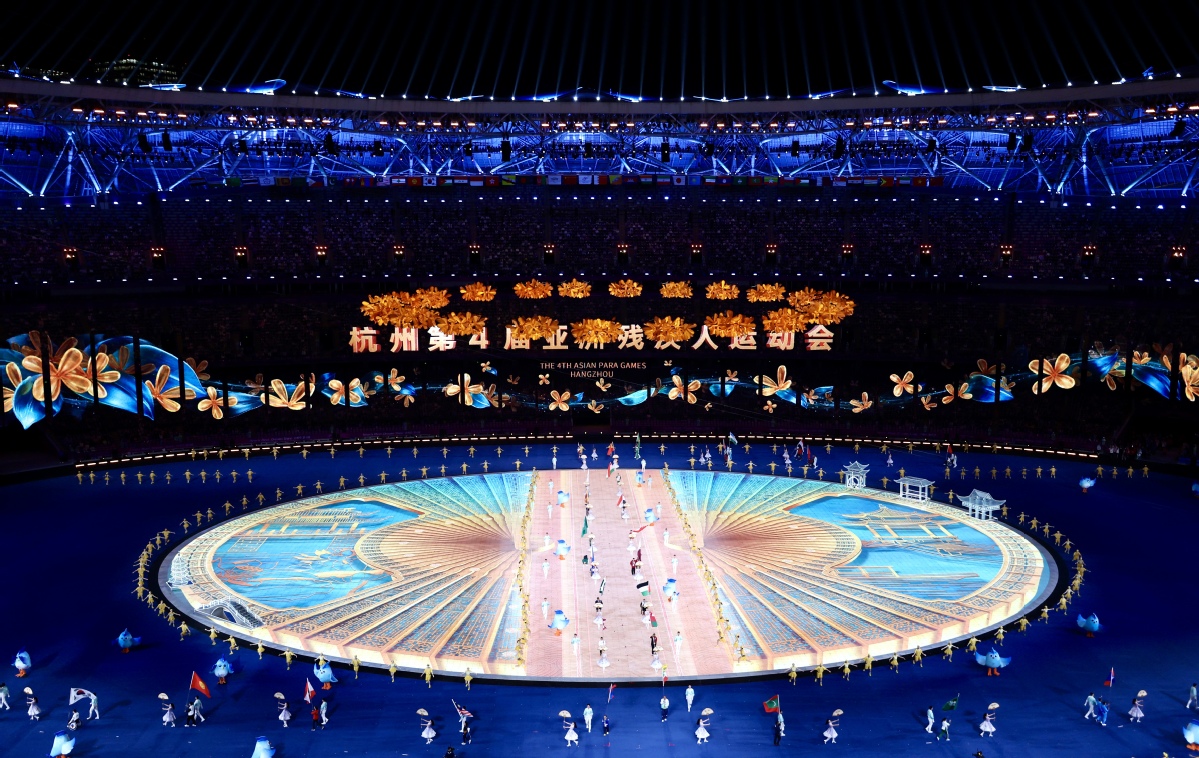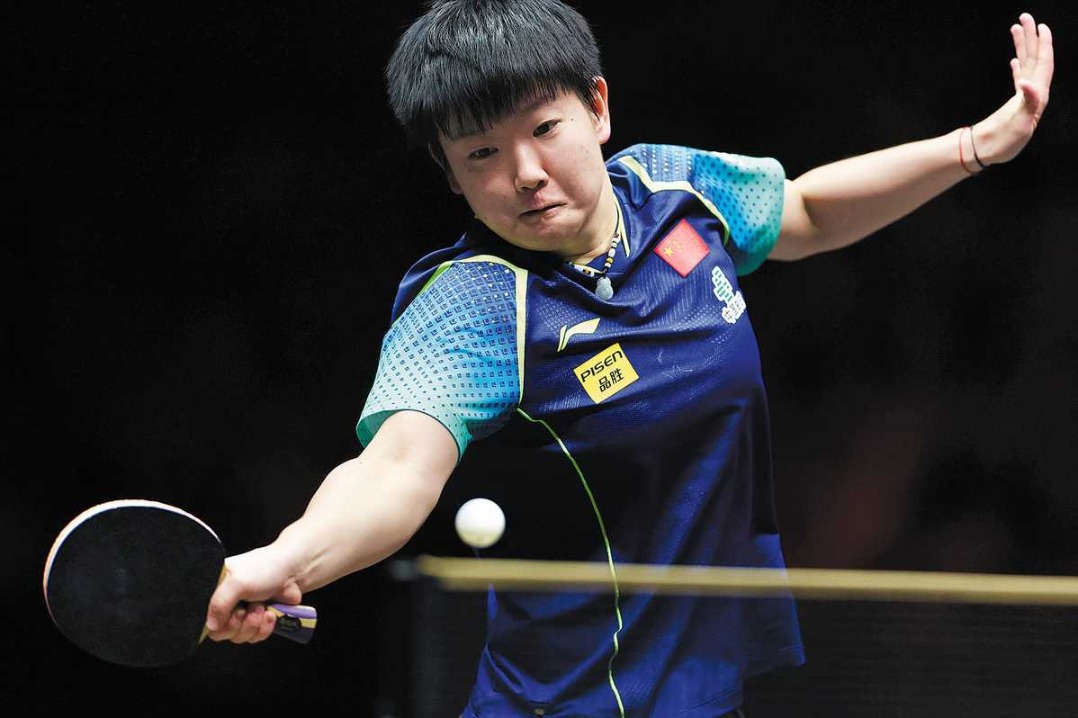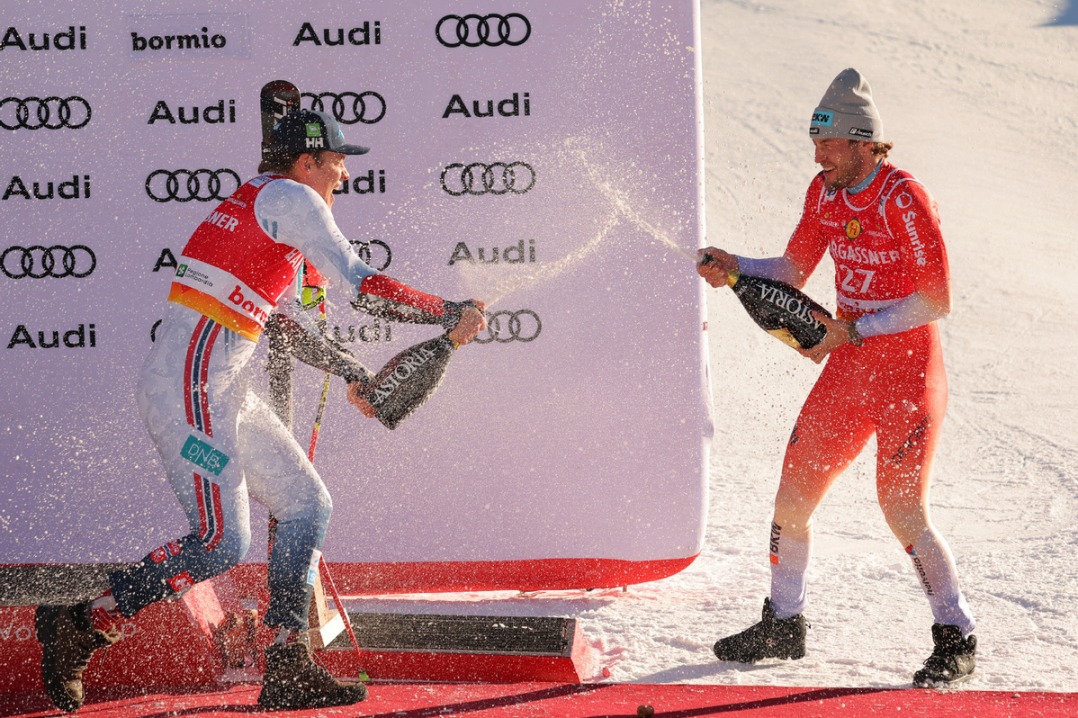4th Asian Para Games concludes with a heartfelt closing ceremony


With poetry, music and love, the 4th Asian Para Games bade farewell to all participants on Saturday in an unforgettable closing ceremony at the Olympic Sports Center Stadium in Hangzhou, capital of East China's Zhejiang province.
After seven days of action-packed tournament, the Para Games culminated in a touching finale that was full of Chinese-style romance.
With Chinese State Councilor Shen Yiqin in attendance, Majid Rashed, president of the Asian Paralympic Committee (APC) declared the Para Games closed.
"Hearts Meet, Dreams Shine," said Rashed in Chinese, referring to the Para Games' slogan. "When I said those words at the end of the opening ceremony, who could have thought that so many hearts would meet and that the dreams would shine so brightly?"
"I said that I thought these would be the biggest and best Asian Para Games ever. But they have surpassed my expectations.
"Hangzhou, you have been magnificent!" he said.
Over the past week, over 3,000 para-athletes from across Asia contended in 501 competitive events across a total of 22 sports in Hangzhou.
"Here, sports and culture were intertwined, interaction and mutual learning increased, and the prospects for the Asian road toward common development, openness and integration were also enhanced," said Cheng Kai, president of the 4th Asian Para Games Organizing Committee and chairman of the China Disabled Persons' Federation.
"The flame for the Asian Para Games is about to be extinguished. We send out a sincere wish that the burning flame, lit by our passion, will become a beautiful rainbow to convey our love to the world," said Cheng.
Themed "Let Your Dreams Fly and We Will Meet Again", the closing ceremony put on a show of China's traditional rites and rituals when people see off friends.
As is customary in ancient China, when people wrote poetry for friends departing on a journey, especially among poets and literary figures, the spectators were treated with some of China's best-known farewell poems during the ceremony.
Serving tea to guests is another time-honored Chinese tradition. Both the West Lake Longjing tea production and the Jingshan tea ceremony — components of China's traditional tea-processing techniques and associated social practices that have been inscribed on UNESCO's Representative List of the Intangible Cultural Heritage of Humanity — are from Hangzhou, the host city of the Para Games.
Through artistic renderings of Chinese tea culture, including costume designs and choreography of the performers, the show delivered its promise to "take the purest water and brew the best tea for our finest friends," as suggested by its chief director Sha Xiaolan.
Over the course of the artistic performances, in which a total of 213 people with disabilities took part, Chinese musical instruments, including di (Chinese flute), xiao (vertically played bamboo flute) and guqin (a plucked seven-string instrument) combined with orchestral music to captivate the audiences with an auditory treat of Chinese and international music, both traditional and modern, befitting those customs.
After a handover ceremony, Hangzhou officially passed the APC flag onto the Japanese prefecture Aichi and its capital city Nagoya, co-hosts of the 5th Asian Para Games in 2026.
As the flame of the main cauldron dimmed, Du Chengcheng, a community service worker who had her left leg amputated because of illness and who has been narrating films for the visually impaired since 2010, described the process of the fire being extinguished to a group of children with visual impairment, while they sat on the stairs around the cauldron, listening intently and soaking in each and every moment of the special occasion.





























